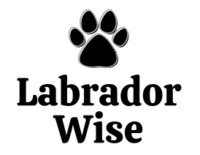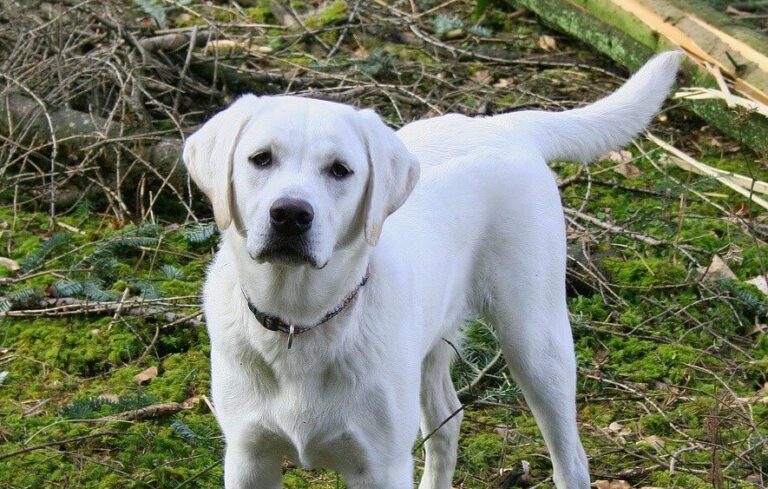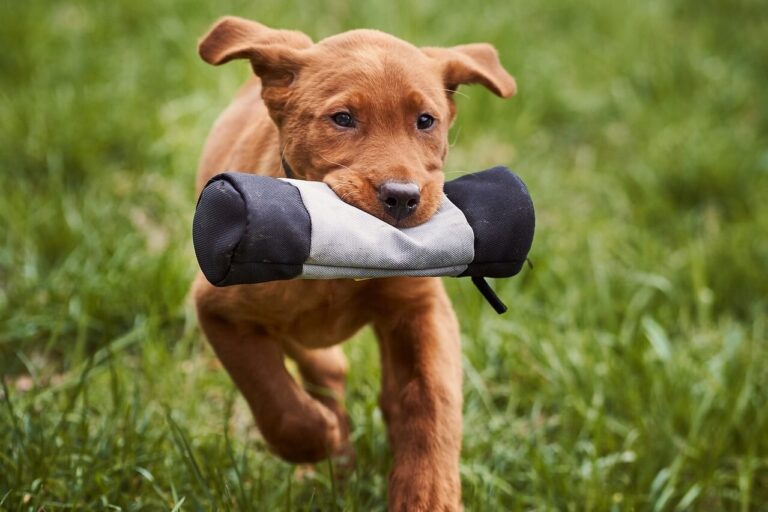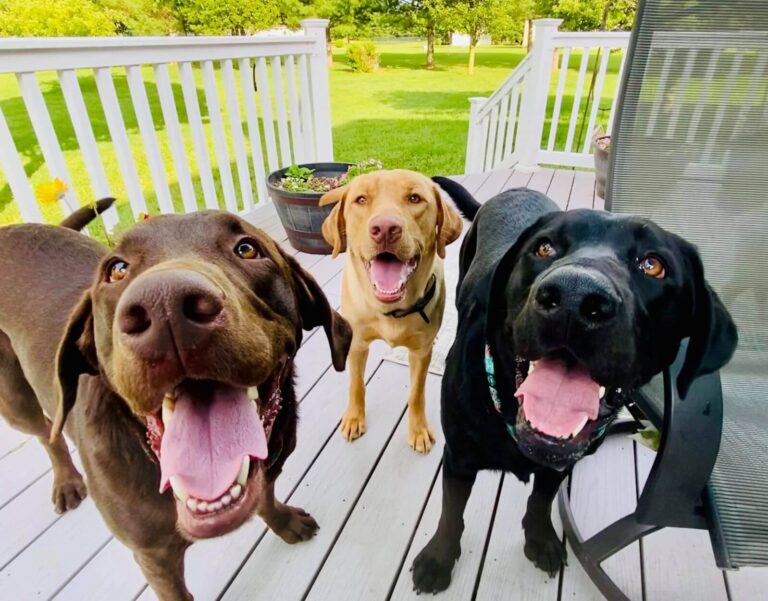Part of getting a new puppy or rescue dog is being responsible for training them to be a well-behaved member of the family.
It’s a big commitment of time to train a young puppy, especially a Labrador puppy, and the process can be challenging… as well as a test of your patience.
If this is your first puppy, or you’re new to dog ownership in general, be aware that training a dog is a lot more work than it looks!
One of the strategies that dog parents use to help with the training process is to sign up for puppy training classes, also known as puppy school!
(This article may contain affiliate links. As an Amazon Associate I earn from qualifying purchases. Learn more)
Should you sign up for puppy school for your dog? Read more for an overview of the purpose, benefits, and typical cost of puppy classes to help decide whether it makes sense for your new dog.
Purpose of Puppy Training School
All puppies, especially Labrador Retriever puppies, can benefit from training that teaches them to be a happy, well-mannered, and controlled dog both at home and in public.
An out-of-control little puppy may be adorable at first, but a wild, untrained puppy becomes an out-of-control large dog later on.
And as Labradors are large-breed dogs who can grow to be 100 pounds within the first 18 months, you really need to be careful that you’re training for the right behavior from the start.
It’s much easier to start training for certain types of positive behaviors in your dog when they’re small rather than waiting until they’re larger.
For example, it’s easier to teach loose-leash walking with a young 15 lb puppy rather than with an 80-90 lb Lab who’s dragging you down the street.
It’s also much easier to teach a young puppy how to ride in a car safely with good manners rather than trying to teach an enormous dog to sit calmly in the car and not run you off the road.
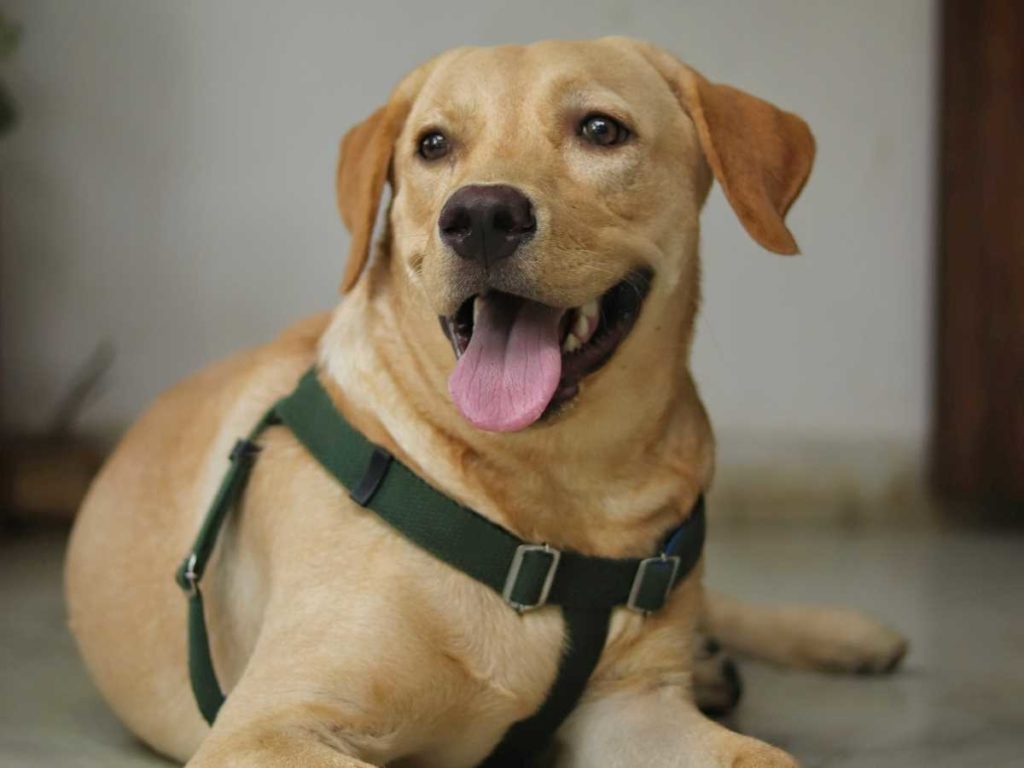
Overview & Cost of Puppy Training Classes
Puppy training classes are typically offered starting at around 16 weeks of age for young puppies. They are taught typically by certified and experienced dog trainers in a group setting.
They are typically a 4-8 week hourlong class that meets once per week at a pet store or training site. You might have between 5 to 10 other puppies and their human parents in the class with you.
The class instructor will have each puppy & human team practice a new skill a few times, going slowly and with a lot of repetition. Then they’ll give you tips on how to repeat the training at home in small amounts so that your puppy can practice outside of class.
Though you may bring home your Labrador puppy around 7-8 weeks of age, you likely won’t be able to start enrolling in a puppy class until your dog is at least 16 weeks old.
This is when many puppies following the typical vaccine schedule have received most of their vaccinations that allow them to be around other dogs safely. Double-check with your veterinarian to make sure that’s their recommendation as well.
You might find some classes that allow enrollment younger than 16 weeks, but be sure to check with your vet about this.
If you choose to enroll your pup in a puppy training class, the class should require you to show proof of vaccinations for your puppy before you are allowed to start the first session.
Even if you adopt an older puppy or rescue puppy that’s under one year of age, you can often find a specific beginner puppy class that will have dogs around the same age as yours. It’s important to match your dog with the correct class for their age, size, and training level.
Depending on your area, you can expect to pay between $80-$150 for a beginner puppy school session of about 4-8 weekly group classes.
(Read More – Cost of Owning a Lab: 9 Expenses to Consider for New Owners)
How Puppy School Benefits Your Dog
Puppy school typically meets for between 45 minutes to one hour per class and will start with the basics of training at the most beginner level with your dog.
Puppy school will teach training techniques such as name recall and recognition, getting your puppy’s attention amid distractions, and basic commands like “sit” and “watch me” dog commands which can help in busy environments.
Puppy school will also help your dog learn to wear a leash and walk short distances with it (while hopefully not chewing on it).
Don’t worry if your puppy appears hyperactive, distracted, or overly excited in puppy school, or does not respond to much training at the beginning.
These classes are for puppies to just get a foundation of basic training, promote a positive training experience, and prepare for continued training work with you.
It’s an opportunity for a puppy to be in an exciting and interesting group setting, and learn a good, positive foundation for beginning training.
Don’t have unrealistic expectations that your darling little 5-month-old puppy will come out of this class completely trained. That is not the goal of puppy classes!
You’ll see lots of silly puppy behavior in puppy school, like barking, whining, jumping, peeing in the middle of the room, trying to escape, and lots of puppy playing.
Keep your expectations realistic: No one’s coming out of here with a perfectly trained dog!
We’ve had all sorts of unruly behavior in our puppy classes! We had a Labrador who stole his neighbor’s entire carton of treats and had a “Code Yellow” in the middle of the classroom.
We’ve been in puppy classes where other participants had to be removed from the room for excessive barking, or put in a separate location because they were so agitated or overly excited.
It doesn’t mean that your dog is going to be hard to train if they are extremely excited in puppy school. It’s all part of the experience of puppyhood and underlines the importance of why it’s necessary to train your dog well.
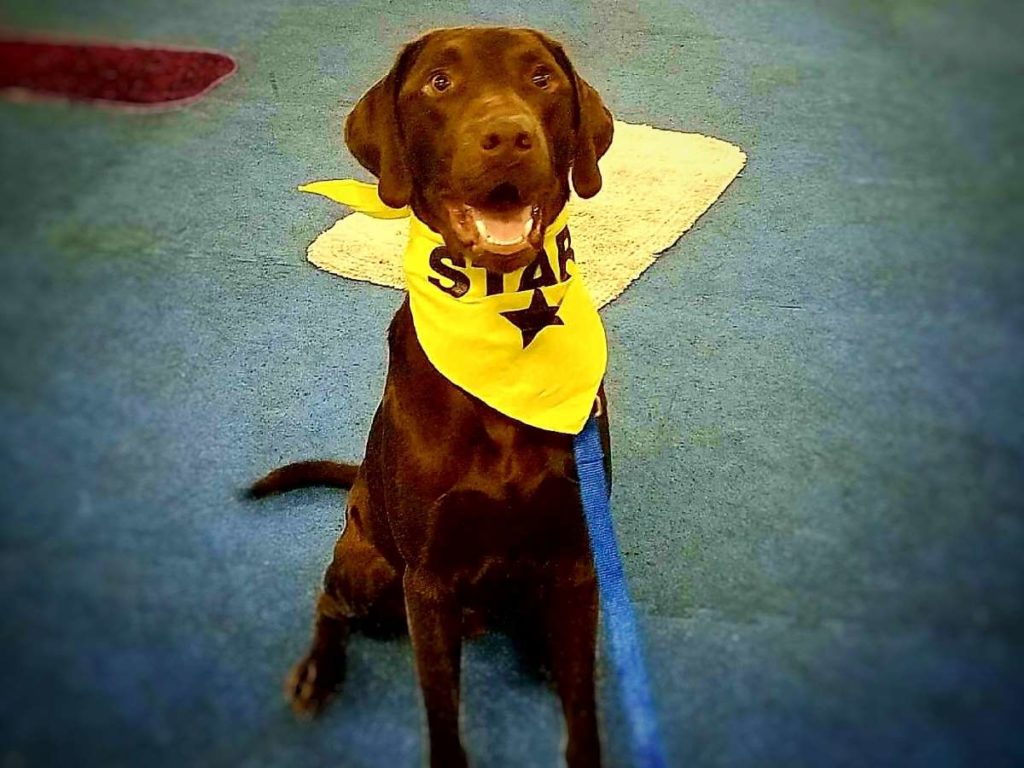
One benefit of puppy school over dog training by yourself is that the class environment teaches your dog normal “puppy play” behaviors, while at the same time allowing them to focus on learning to follow instructions with distractions or other noises in their environment.
This is a valuable lesson for them to learn as you continue on through other training as they get older.
If your puppy can learn to focus on you in an environment or with other dogs, they will respond to you better later on when you’re out in public with them and they face distractions, noises, or other exciting disturbances.
Choosing to sign your Lab puppy or other dog up for puppy training classes can also give your dog a wonderful chance for socialization with other young puppies. This is extremely important for their development and for their ability to get along with other dogs in other environments.
Socializing your dog is a critical part of the first year of their life. Attending a puppy class in a group setting with a small group of other dogs who are approximately the same age can give your dog a positive start to good socialization.
Keep in mind that socialization in puppy classes is actually a really important benefit for signing your puppy up for puppy school.
Even if you have a very easygoing Labrador puppy or a dog whose temperament responds very quickly to training, you still might want to sign your puppy up for some puppy classes simply for the socialization aspect.
How Puppy Classes Can Help You
In addition to helping your puppy, puppy school has benefits for the human owners as well.
By taking your puppy to puppy classes, you are able to see their personality and temperament develop, as well as observe them as they engage and interact with other dogs. It can help give you insight into how they respond to training, as every dog is different.
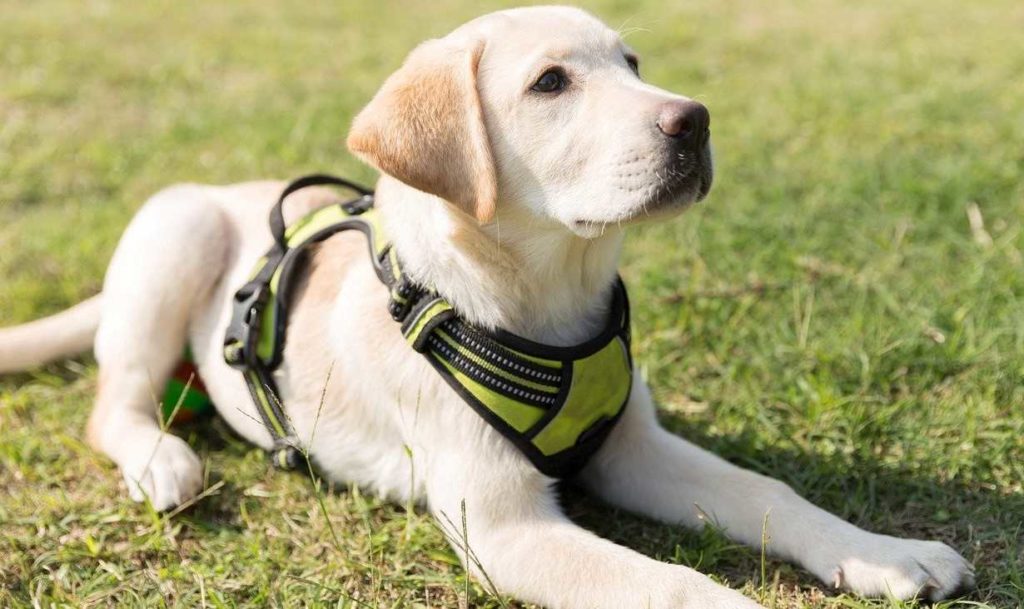
Puppy school can help you learn what your puppy’s strengths and challenges may be, and give you more insight on what areas they might excel quickly in. It can also allow you to start to see what areas might be necessary to spend extra time working on in future training lessons.
Group puppy training classes can also allow you to understand what methods your puppy responds to. For example, some Labradors are very food-oriented. They tend to respond very quickly and eagerly to treats!
Other puppies may not respond to treats or may prefer a different positive reward training system. This is the insight that you can gain from the beginning when working with your dog in puppy training classes.
Taking a few puppy classes with your dog also helps strengthen the bond between you and your puppy.
There are many opportunities in puppy classes for play, cuddles, love, and praising your dog. Your Lab puppy can develop a stronger bond with you as they engage with you in the training process and receive attention, praise, and probably many treats too!
Puppy training classes also give you the opportunity as a pet parent to meet and socialize with other dog owners. You can meet other pet families who share similar issues or concerns as you, who have the same breed of dog as you, or who can be a great resource for advice and questions.
Have fun in puppy school! Your Labrador Retriever will grow so quickly, and their life will pass before you know it. You’ll miss those crazy puppy days and the wild antics of a young dog.
Where to Find the Best Puppy Classes
Once you’ve decided that puppy classes are something you want to do with your dog, how do you go about finding the best ones?
You may be able to locate puppy training classes offered at pet stores in your area such as Petco or Petsmart. Look for classes labeled “Beginner” or “Puppy Level 1.”
They often have a calendar of puppy training and socialization classes, sometimes with open or rolling enrollments that you can join into at any time. Some places may also call this type of class “Puppy Kindergarten.”
Your veterinarian’s office can be a great resource for where to sign up in your local area if you’re interested in taking puppy classes. We’ve found that vets tend to offer great recommendations for facilities and training programs that they (or their clients) have used with success.
You may also find specialty dog training schools in your area that offer classes specifically for puppies.
You’ll find that most facilities and training centers will separate young puppies from older dogs because of their size and for safety. It’s important to have the young puppies separated from the older dogs because some older dogs may already have developed some issues such as aggression that could scare a young puppy.
You don’t want your young puppy to have negative interactions with other dogs early in the training process, as this can traumatize them, make them skittish around other dogs in the future, or make them develop a fear of training.
After your puppy completes puppy school, they will generally be able to move on to a class for older dogs and bigger puppies. Congratulations!
This may be something as simple as the next training level or a class for older puppies, or your program may also offer those classes under the program known as AKC S.T.A.R. Puppy or AKC Canine Good Citizen classes.
Depending on the training center that you use for puppy school, they will likely have a schedule that gives you the typical progression of classes should you wish to continue with them. You might find that your puppy does well in puppy school and enjoys the group training atmosphere. You’ll likely get a certificate of completion and a recommendation for what class to take next in the training process.
Some Lab owners find that another group class is a good idea for their puppy after they complete the beginning stage of puppy school.
Or, you might find that your particular puppy does better one-on-one with you or a trainer and would instead benefit from taking a break from group classes until later on.
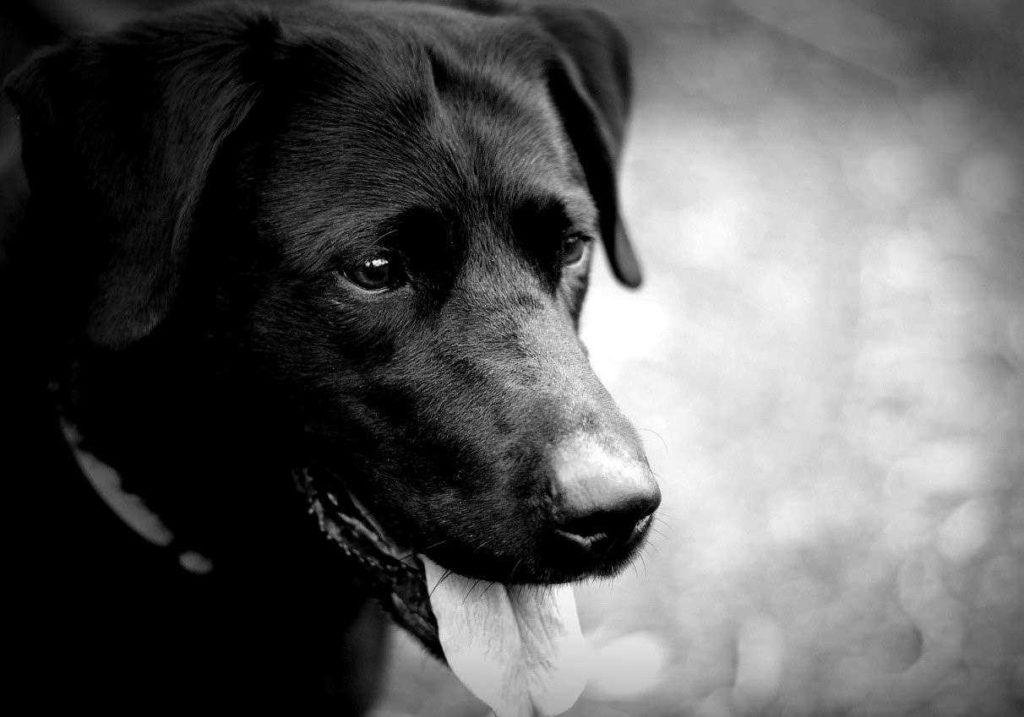
Summary: Does My Puppy Need Puppy School?
Should you sign your puppy up for puppy school? You might find that enrolling in puppy training classes can help you and your dog learn a foundation for training and have a positive experience socializing with other dogs and families.
If you choose to sign up for puppy classes, remember to enjoy yourself and your puppy in puppy school. Be sure to give your Labrador puppy plenty of praise and have realistic expectations for what the puppyhood and training experience is like.
For more tips on puppy life with Labradors and other dogs, check out more articles in the Puppy Guide!
